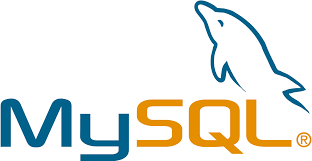- Home
- About us
- Database Consultancy
- Database Administration
- Staffing
- Jobs & projects
- Blog
- References
- Contact
-
General phonenumber
+31(0) 35 369 0307
Technical support+31(0) 35 369 0304Follow us:
Home > landingspagina's databases > MySQL
MySQL Consultancy and Support
 OptimaData offers consultancy, training, and management services for MySQL database platforms.
OptimaData offers consultancy, training, and management services for MySQL database platforms.
What is MySQL
MySQL is an open-source management system for relational databases (RDBMS). SQL is the language used to build up, question, and maintain a database from a system like this. Originally, its main use was internet applications, such as forums and guest registers, usually in combination with PHP. Nowadays, MySQL is fundamental to many internet applications, as well as stand-alone software.
The origin of the name ‘MySQL’ is unclear, but it is suspected that it was named after the daughter of co-founder Monty Widenius, who is called My.
The origin of the name ‘MySQL’ is unclear, but it is suspected that it was named after the daughter of co-founder Monty Widenius, who is called My.
MySQL architecture
The MySQL software package consists of, among other things, a server programme, usually called MySQLD. Within this abbreviation, the ‘D’ stands for ‘daemon’, the Unix or Linux terminology for a process running on a computer without any user’s interference.
Furthermore, the package consists of a collection of client programmes, such as MySQL and MySQLdump, which allows automatic or interactive communication with the server. MySQL is a popular database management system that is used for the structured storing of data for a great number of applications. Examples of website that use MySQL are Wikipedia, Google, and YouTube. A well-known frontend is phpMyAdmin, which is a web-based management programme, written in PHP and MySQLWorkbench, a graphical client in which a database design can be created and maintained. Changes in the design can be processed in the database automatically, which makes this programme very practical.
Furthermore, the package consists of a collection of client programmes, such as MySQL and MySQLdump, which allows automatic or interactive communication with the server. MySQL is a popular database management system that is used for the structured storing of data for a great number of applications. Examples of website that use MySQL are Wikipedia, Google, and YouTube. A well-known frontend is phpMyAdmin, which is a web-based management programme, written in PHP and MySQLWorkbench, a graphical client in which a database design can be created and maintained. Changes in the design can be processed in the database automatically, which makes this programme very practical.
Populair open source database
The first internal version of MySQL appeared in 1995 and was originally developed by MySQL AB. MySQL started out as a way to make quick connections to mSQL’s tables. After some tests, however, mSQL turned out not to be fast and flexible enough. A new API was developed, which resembled mSQL and was later used to port mSQL applications to MySQL in an easy way. Over the years, MySQL has become one of the most popular SQL databases, thanks to, among other things, increasing popularity and trust in open-source platforms.
MySQL is often used in combination with Linux, Apache, and PHP or Perl. This combination of software is called LAMP. In this combination, MySQL is also used for other operating systems, such as Mac (MAMP) or Windows (WAMP).
MySQL is a common database for open-source forums and content management systems (CMS) or blog software, such as Drupal, XOOPS, Mambo or Joomla.
MySQL is often used in combination with Linux, Apache, and PHP or Perl. This combination of software is called LAMP. In this combination, MySQL is also used for other operating systems, such as Mac (MAMP) or Windows (WAMP).
MySQL is a common database for open-source forums and content management systems (CMS) or blog software, such as Drupal, XOOPS, Mambo or Joomla.
Click on the buttons for more information about our services on MySQL. We offer Consultancy, trainings and staffing services on the MySQL platform and support.
Stay up to date?
Leave your emailadres and stay up to date with the latest open source database news, events and blogs.

